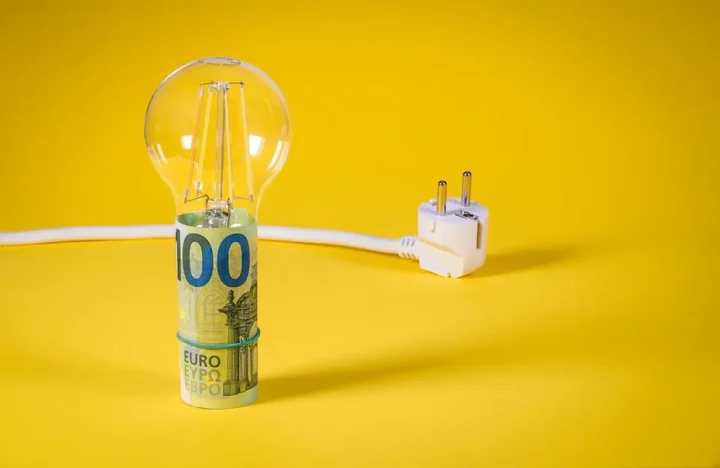Cost-Effective Diesel Generator Solutions for Small Businesses
Running a small business without reliable power?
You’re basically playing Russian roulette with your entire operation. Every time the lights flicker, your heart probably skips a beat because you know what’s coming…
Lost revenue. Damaged equipment. Frustrated customers.

Here’s the reality:
Small businesses lose between $137 to $427 per minute during power outages. Multiply that by hours or even days, and you’re looking at catastrophic losses that could sink your business.
But here’s some good news…
Diesel generators offer the most cost-effective backup power solution for small businesses. And I’m going to show you exactly why they make financial sense — and how to choose the right one for your operation.
Here’s what you’re about to discover:
- Why Small Businesses Need Backup Power (It’s Not Optional)
- The Real Cost of Diesel Generator Ownership
- Choosing the Perfect Generator Size
- Money-Saving Tips for Smart Business Owners
- Installation & Maintenance Made Simple
Why Small Businesses Can’t Survive Without Backup Power
Let me paint you a picture…
Your restaurant is packed on a Friday night. Orders are flying out of the kitchen. The register is ringing up sales. Then — BOOM — the power goes out.
What happens next? Everything stops. The kitchen goes dark. Credit card machines shut down. Your freezers start warming up.
In minutes, you’re losing money. In hours, you might be throwing away thousands of dollars in spoiled food.
This isn’t a hypothetical scenario. Power outages cost the U.S. economy $150 billion annually, with one in four companies reporting their power drops out at least once per month.
The Hidden Costs of Going Without Backup Power
Most small business owners think about the obvious costs — lost sales, damaged inventory. But there are hidden costs that’ll really shock you:
- Employee Productivity: When your team can’t work, you’re still paying wages for zero output
- Data Loss: Computers crash, taking critical business data with them
- Customer Trust: Nothing damages your reputation faster than failing to deliver because “the power went out”
Think about your business specifically. How much revenue do you generate per hour? What percentage of that depends on electricity?
If you’re like most modern businesses, the answer is probably close to 100%.
Why Diesel Generators Are the Smart Choice for Small Business
Here’s something that might surprise you…
Diesel generators are hands-down the most cost-effective backup power solution for small businesses. And it’s not even close.
Here’s why:
Diesel generators convert up to 45% of fuel energy into electrical power, which is significantly higher than other fuel types. That translates to serious savings on your fuel bills.
But the real magic happens over time…
The Long-Term Financial Benefits
While diesel generators might cost more upfront, they absolutely demolish the competition when it comes to long-term costs:
- Fuel Efficiency: Diesel engines are 20-40% more fuel-efficient than gasoline generators
- Durability: A quality diesel generator can run 15,000 to 50,000 hours — that’s decades of reliable service
- Lower Maintenance: Fewer moving parts mean fewer things can break
Let me break this down with real numbers…
A typical small business diesel generator running 8 hours during an outage will consume about 2-3 gallons of fuel per hour for a 20kW unit. Compare that to a gasoline generator of the same size, which might burn 4-5 gallons per hour.
Over the life of the generator, that difference adds up to thousands of dollars in fuel savings alone.
Sizing Your Generator: Getting It Right the First Time
Here’s where most business owners mess up…
They either buy a generator that’s too small (and it can’t handle their load) or too big (and they waste money on capacity they’ll never use).
The sweet spot for most small businesses is between 20kW and 100kW. Small to medium businesses typically need generators in this range, costing between $10,000 and $40,000.
Quick Generator Sizing Guide
20-30kW Generators: Perfect for small offices, retail shops, or restaurants
- Powers: Lighting, computers, basic HVAC, refrigeration
40-60kW Generators: Ideal for medium-sized operations
- Powers: Full HVAC systems, multiple computers, manufacturing equipment
80-100kW Generators: Built for larger facilities
- Powers: Heavy machinery, large HVAC systems, extensive lighting
Pro tip: Always size your generator for about 80% of its maximum capacity. This gives you room to grow and ensures optimal fuel efficiency.
The Real Numbers: What You’ll Actually Pay
Let’s get down to brass tacks…
The global diesel generator market is projected to grow from $20.84 billion in 2024 to $37.03 billion by 2032, which tells you one thing — businesses are investing heavily in backup power.
Initial Investment Breakdown
For a typical small business setup, here’s what you’re looking at:
Generator Unit: $10,000 – $40,000 (depending on size) Installation: $3,000 – $8,000 Electrical work: $2,000 – $5,000
Permits & inspections: $500 – $1,500
Total investment: $15,500 – $54,500
Seems like a lot? Let’s put it in perspective…
If your business generates $500 per hour in revenue, and you experience just one 8-hour outage per year, you’re losing $4,000. Factor in inventory losses, employee wages, and recovery time, and that number easily doubles.
Your generator pays for itself after just a few significant outages.
Money-Saving Secrets for Smart Business Owners
Want to maximize your investment? Here are the insider tricks that most business owners don’t know:
Buy During Off-Season
Generator demand spikes before hurricane season and during winter months. Purchase during spring or early fall for better prices.
Consider Used Equipment
A well-maintained used diesel generator can offer 80% of the performance at 50% of the cost. Just make sure you get a thorough inspection first.
Bundle Services
Many dealers offer package deals that include installation, maintenance, and extended warranties. These bundles often cost less than buying services separately.
Take Advantage of Tax Incentives
Business backup generators often qualify for Section 179 tax deductions, allowing you to deduct the full purchase price in the year you buy it.
Installation Made Simple
Here’s something most people don’t realize…
Installing a diesel generator isn’t as complicated as you think. But there are some critical steps you can’t skip:
The Basic Installation Process
- Site Preparation: Your generator needs a level concrete pad and proper clearances
- Fuel Storage: You’ll need a fuel tank (usually 150-500 gallons for small businesses)
- Electrical Connections: This includes automatic transfer switches and load panels
- Permits: Most areas require permits for generator installation
The whole process typically takes 2-4 days for a standard installation.
Important: Always use a certified installer. This isn’t a DIY project, and improper installation can void your warranty.
Maintenance That Won’t Break the Bank
One of the biggest advantages of diesel generators? They’re incredibly easy to maintain.
Essential Maintenance Schedule
Weekly: Visual inspection, check oil and coolant levels Monthly: Run the generator for 30 minutes under load Every 100 Hours: Oil and filter change Every 250 Hours: Air filter replacement
Annually: Professional inspection and tune-up
Most businesses spend $500-$1,200 per year on maintenance. Compare that to the cost of lost business during outages, and it’s a no-brainer.
Making the Investment Decision
Still on the fence?
Let me make this simple for you. Calculate your potential losses using this formula:
(Your hourly revenue) × (Average outage duration) × (Number of outages per year)
Add 25% for indirect costs like employee wages and recovery time.
If that number is more than $3,000 per year, a diesel generator will pay for itself in less than 5 years. And that’s being conservative.
But here’s the thing…
This isn’t just about the money. It’s about peace of mind. It’s about being the business that stays open when everyone else closes. It’s about protecting your reputation and your customers’ trust.
When the power goes out in your area, you’ll be the only business with the lights still on. That’s worth a lot more than money.
Getting Started: Your Next Steps
Ready to protect your business? Here’s exactly what you need to do:
- Calculate your power needs using the sizing guide above
- Get quotes from 3-5 reputable dealers in your area
- Factor in installation and maintenance costs for true comparison
- Check local permit requirements before making your final decision
- Schedule installation during your slowest business period
The best time to install backup power is before you need it. Don’t wait until the next major storm or grid failure puts your business at risk.
Wrapping This Up
Diesel generators aren’t just backup power — they’re business insurance that actually pays for itself.
With the diesel generator market growing at 7.45% annually, more smart business owners are making this investment every day.
The question isn’t whether you can afford a diesel generator…
It’s whether you can afford to go without one.
Your business, your employees, and your customers are counting on you to keep the lights on. Don’t let them down.


